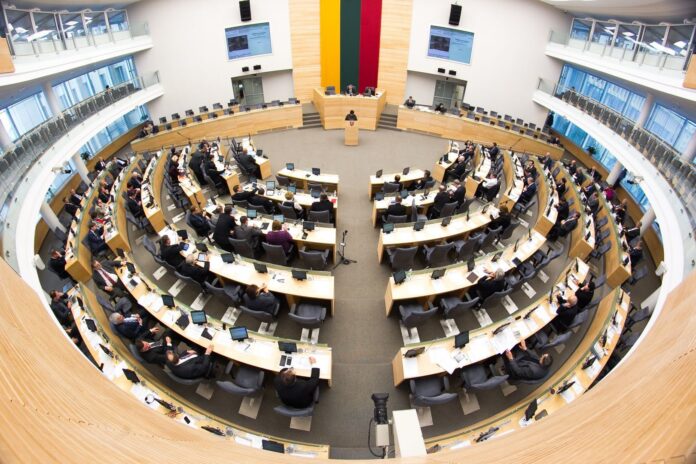
The expenses scandal, unveiled by Laisvės TV in May, touched all dominant parties in Lithuania. Current and former politicians in local councils, many of whom are now in parliament, were found claiming potentially fraudulent expenses. The leadership of the centre-right Homeland Union party decided that the government will stay in office despite the scandal over expenses that caused the resignation of a minister.
Parliament rejected a proposal by the Homeland Union to “reset” the political system by dissolving, following reports that many politicians, including three ministers, had misfiled expenses while working as municipal councillors. Prime Minister Ingrida Simonyte, who has led the centre-right coalition government since 2020, initially pledged to present her resignation unless parliament called a snap election but in the end deferred the decision to the party leadership. The party leadership voted against the prime minister and the government resigning (see No Snap Elections), thus taking personal and institutional responsibility for the formerly predominant way municipalities distributed expenses to councillors, according to Homeland Union.
The expenses scandal has impacted the ratings of the conservative Homeland Union-Lithuanian Christian Democrats (TS-LKD), the largest party in the ruling coalition. According to a poll commissioned by LRT, voters are most likely to punish the conservatives and the Social Democrats, the largest opposition party in the parliament.
Despite the expenses scandal, the Social Democratic Party of Lithuania remains the most popular choice – 17.8% of respondents said they would vote for Social Democrats, down from 21.8% before the scandal in April. Democrats “For Lithuania” is in second place, up from 14.5% to 14.7%. The survey by Baltijos Tyrimai, which polled 1,009 people in May, showed that only 8.6% of respondents would vote for TS-LDK, down from 11.3% before the scandal. The Lithuanian Greens and Farmers Union (LVŽS), up from 8.2% in April to 10% in May, has now overtaken the conservatives and is ranked third. This means that the three most popular parties in Lithuania are in the parliamentary opposition.
The scandal revealed that politicians from Lithuania’s major political parties were claiming potentially fraudulent expenses. However, the drop in support was more related to the leading conservative politicians, according to Gabrielė Burbulytė, a political scientist at Klaipėda University (KU). “The opinion of the population was influenced not so much by the scandal itself, but by what [Foreign Minister Gabrielius] Landsbergis and [Prime Minister Ingrida] Šimonytė said,” she explained. Both Landsbergis and Šimonytė said the government would resign if the parliament decided against holding snap elections, and they both later rescinded their pledge.
“There was just such a shock in society, because for many it was a very unexpected decision that was made at the time, and it could have influenced the assessment,” Burbulytė added.
The Liberal Movement, part of the ruling coalition, recorded a drop in support – 7.3%, down from 8.2%. The support for the Freedom Party, the other party in the ruling coalition, recorded a rise in support from 3% to 3.2%.
Only one in five people in Lithuania think that things in the country are improving, according to a Baltic Research opinion poll published by LRT on June 12. The 22-percent figure remains unchanged from a similar poll in April, but the percentage of those who thought that the situation in the country was getting worse rose to 76%, from 68% a month ago.
The Armed Forces remain the most trusted institution in Lithuania, with 76% of respondents having confidence in the military, followed by the police in second place with 71% and the Church at number three with 66%. The president’s institution was trusted by 66% of respondents, the state social insurance fund SoDra by 65%, municipalities by 58%, and the national media by 50%.
The most distrusted institutions were the judiciary with 49%, the government with 66% and the parliament with 76%.



























